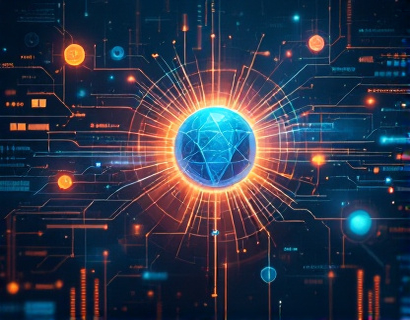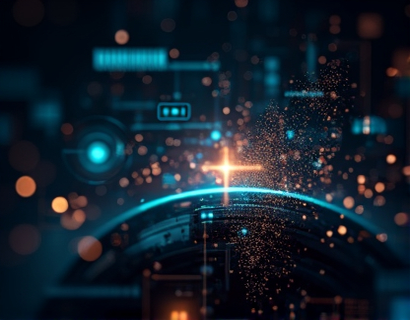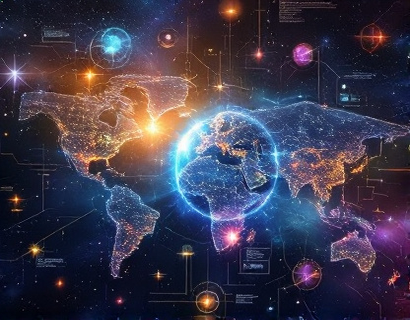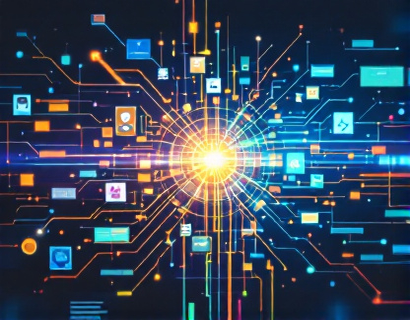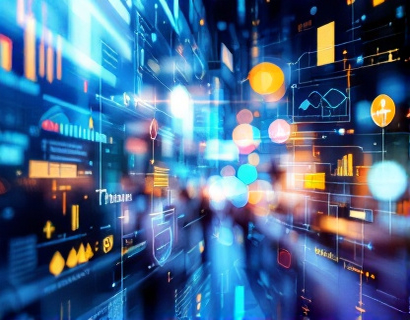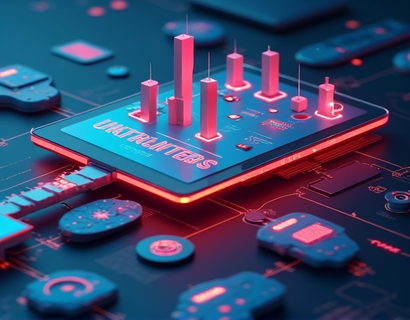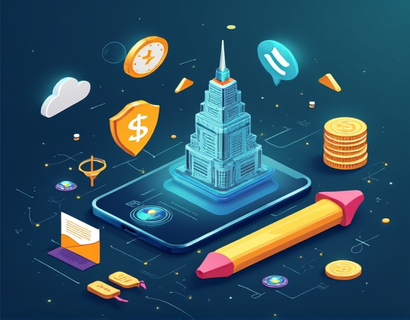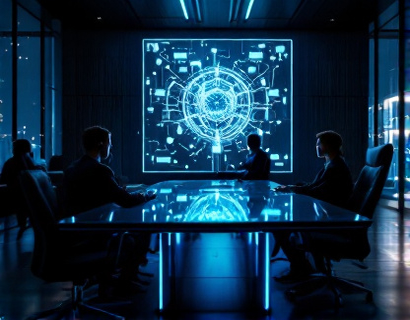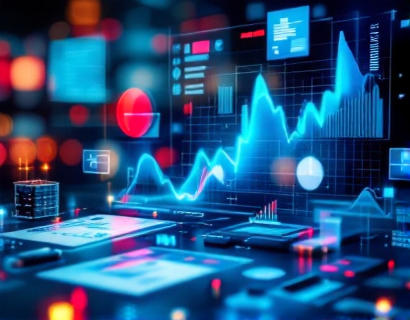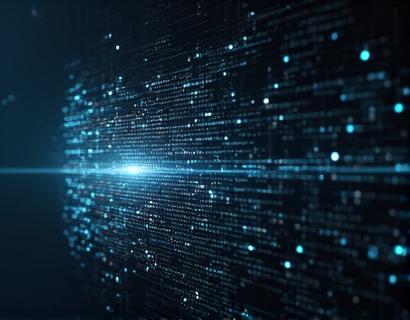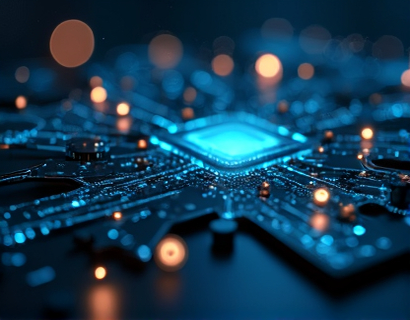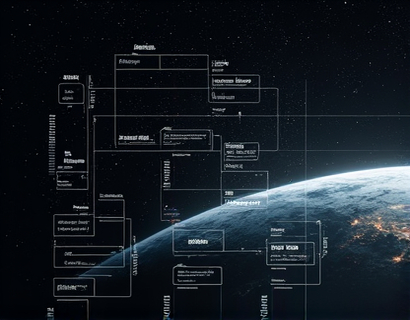Unlocking Digital Transformation: Leveraging AI and Crypto for Next-Gen Ucosystem Experiences
The digital landscape is undergoing a profound transformation, driven by the convergence of artificial intelligence (AI) and cryptocurrency. This synergy is not just a technological curiosity but a powerful force reshaping how we interact with digital services and empowering users in unprecedented ways. For tech-savvy individuals, cryptocurrency enthusiasts, AI aficionados, and early adopters of new technology, understanding this convergence is crucial. This article delves into the intersection of AI and crypto, exploring how these technologies are merging to create innovative applications that redefine user interactions and enhance financial empowerment.
The Intersection of AI and Cryptocurrency
The integration of AI and cryptocurrency is a natural evolution, given the inherent strengths of both technologies. AI brings intelligence, automation, and predictive capabilities, while cryptocurrency offers decentralization, security, and transparency. Together, they form a powerful duo capable of revolutionizing various sectors, from finance and healthcare to entertainment and beyond.
One of the primary areas where AI and crypto converge is in the development of smart contracts. Smart contracts are self-executing contracts with the terms of the agreement directly written into code. AI enhances these contracts by enabling more complex and dynamic logic, ensuring that conditions are met with high precision and reducing the need for intermediaries. This not only speeds up transactions but also minimizes the risk of fraud and errors.
Enhancing Financial Empowerment
Financial empowerment is a key benefit of the AI-crypto synergy. Traditional financial systems often exclude a significant portion of the global population due to high costs, complex regulations, and limited access. Cryptocurrency, powered by AI, offers a more inclusive alternative. Blockchain technology, the backbone of cryptocurrencies, ensures that transactions are transparent and verifiable without the need for central authorities.
AI algorithms can analyze vast amounts of financial data to provide personalized financial advice, automate investment decisions, and detect fraudulent activities. For instance, AI-driven robo-advisors can create and manage investment portfolios based on individual risk profiles and financial goals. These tools are accessible to anyone with an internet connection, democratizing financial services and empowering users to take control of their financial futures.
Innovative Applications in Various Sectors
The potential applications of AI and crypto extend far beyond finance. In the healthcare sector, AI can process and analyze medical data to identify patterns and predict outcomes, while blockchain ensures secure and private storage of patient records. This combination can lead to more accurate diagnoses, personalized treatment plans, and efficient management of healthcare data.
In the realm of supply chain management, AI and crypto can enhance transparency and traceability. Blockchain provides an immutable ledger of transactions, while AI can optimize logistics, predict demand, and detect anomalies in real-time. This results in more efficient and reliable supply chains, reducing costs and improving customer satisfaction.
The entertainment industry is another area where AI and crypto are making waves. AI can create personalized content recommendations, generate virtual characters, and even compose music and scripts. Cryptocurrency and NFTs (non-fungible tokens) offer new ways for creators to monetize their work and for fans to support their favorite artists directly, bypassing traditional intermediaries.
User Interaction and Experience
The convergence of AI and crypto is not just about backend processes; it significantly impacts user interaction and experience. One of the most notable advancements is the development of decentralized applications (dApps). Unlike traditional apps hosted on centralized servers, dApps run on blockchain networks, ensuring greater security and user control. AI enhances these applications by providing intelligent interfaces, predictive functionalities, and seamless user experiences.
For example, AI-powered chatbots integrated into dApps can offer 24/7 customer support, answer queries, and guide users through complex processes. These chatbots can understand natural language, learn from user interactions, and adapt to provide more relevant and efficient assistance over time. This level of interactivity and personalization is a significant step forward in user experience.
Security and Privacy
Security and privacy are paramount in the digital age, and the AI-crypto combination offers robust solutions. Blockchain's decentralized nature makes it inherently resistant to single points of failure and cyber attacks. AI can further enhance security by detecting and mitigating threats in real-time. Machine learning algorithms can analyze patterns and identify anomalies that may indicate malicious activity, allowing for proactive measures to be taken.
Privacy is another area where AI and crypto intersect. Blockchain's transparency can be balanced with privacy through techniques like zero-knowledge proofs, which allow transactions to be verified without revealing sensitive information. AI can help manage and protect user data, ensuring that personal information is used ethically and securely.
Challenges and Considerations
Despite the numerous benefits, the AI-crypto convergence is not without challenges. Regulatory uncertainty remains a significant hurdle, as governments worldwide grapple with how to oversee these decentralized and often borderless technologies. Compliance with existing financial regulations and the development of new frameworks are essential to ensure the sustainable growth of AI and crypto applications.
Another challenge is the technical complexity involved in integrating AI and blockchain. Developers need a deep understanding of both technologies to create robust and efficient systems. Education and training programs are crucial to build a skilled workforce capable of driving innovation in this space.
Scalability is also a key consideration. While blockchain technology has made significant strides, it still faces limitations in terms of transaction speed and cost. AI can help optimize blockchain networks, but ongoing research and development are necessary to overcome these technical barriers.
The Future of AI and Crypto
The future of AI and crypto is bright, with endless possibilities on the horizon. As technology continues to evolve, we can expect even more innovative applications that further blur the lines between the digital and physical worlds. The concept of the metaverse, a virtual reality space where users can interact and transact using digital assets, is a prime example of where AI and crypto will play pivotal roles.
In this virtual realm, AI will power realistic avatars, intelligent environments, and seamless interactions. Cryptocurrency and blockchain will ensure secure transactions and ownership of digital assets. The potential for new business models, social interactions, and economic opportunities is immense.
For tech enthusiasts and early adopters, staying informed and engaged with the AI and crypto communities is essential. Participating in forums, attending conferences, and experimenting with new applications will provide valuable insights and opportunities to contribute to this exciting field.
In conclusion, the convergence of AI and cryptocurrency is unlocking a new era of digital transformation. By leveraging these technologies, we can create more inclusive, secure, and empowering digital experiences. As we continue to explore and innovate, the possibilities are limitless, and the future looks incredibly promising.





